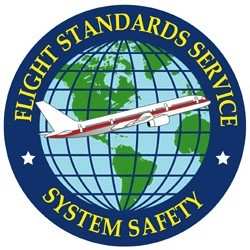From AOPA...
 The Federal Aviation Administration
Tuesday awarded Lockheed Martin the contract to modernize the
flight service station (FSS) system, which provides pilots with the
weather information they need to fly safely. According to the
Aircraft Owners and Pilots Association, the contract means that the
FSS system will finally be brought into the 21st century, while
reining in the cost to operate it. The FAA estimates the new
contract will save the agency $2.2 billion over ten years.
The Federal Aviation Administration
Tuesday awarded Lockheed Martin the contract to modernize the
flight service station (FSS) system, which provides pilots with the
weather information they need to fly safely. According to the
Aircraft Owners and Pilots Association, the contract means that the
FSS system will finally be brought into the 21st century, while
reining in the cost to operate it. The FAA estimates the new
contract will save the agency $2.2 billion over ten years.
Under the current system, flight service station specialists
labor with old equipment and early computers designed in the 1970s
and that have become increasingly costly to operate and maintain.
According to the FAA, the agency spent $500-million dollars on the
flight service station system in 2003 alone.
"Let's be absolutely clear about this. Flight Services have not
been privatized," said AOPA President Phil Boyer. "Lockheed Martin
does not own Flight Service. It has been outsourced to this major
aviation company. Lockheed Martin is being paid by the FAA to
provide the service. The federal government still has ultimate
responsibility for and authority over pre-flight and in-flight
weather briefings."
For pilots, today's announcement means three things: the federal
government will continue to provide pre-flight and in-flight
weather briefing services using FAA-certified, non-government,
contract employees; Lockheed Martin will have to consistently meet
high performance and customer satisfaction standards to retain the
contract - something that is not currently required of the existing
Automated Flight Service Station system; and pilots will not have
to pay user fees for the duration of the contract, which is five
years with an option for five more.
 Pilots will likely lose the ability
to get a walk-in briefing, but in multiple surveys of its members,
AOPA has determined that fewer than two percent currently use
face-to-face briefings as their primary way of getting weather
information. In addition, the current 58 flight service stations in
the lower 48 states, Hawaii, and Puerto Rico will be consolidated
to 20. (Because of the unique nature of aviation in Alaska, the
three flight service stations in that state were not included in
the competitive outsourcing study.)
Pilots will likely lose the ability
to get a walk-in briefing, but in multiple surveys of its members,
AOPA has determined that fewer than two percent currently use
face-to-face briefings as their primary way of getting weather
information. In addition, the current 58 flight service stations in
the lower 48 states, Hawaii, and Puerto Rico will be consolidated
to 20. (Because of the unique nature of aviation in Alaska, the
three flight service stations in that state were not included in
the competitive outsourcing study.)
Exact details of the contract are not yet known, because following
today's announcement the four companies that did not win the
contract have 15 days to challenge the decision, after which the
FAA could take up to 90 days to address the protests.
What pilots gain are specific performance requirements, such as:
phone calls answered by a live briefer within 20 seconds; radio
calls acknowledged within five seconds and requested information
delivered to the pilot within 15 seconds; urgent pilot weather
reports entered into the system within 15 seconds and regular pilot
weather reports within 30 seconds; and flight plans entered into
the system within 3 minutes of the request to file. In addition,
Lockheed Martin will be required to perform customer satisfaction
surveys.
Most of these highly specific performance measures are the
direct result of AOPA being involved in the A-76 process. Because
general aviation is the primary beneficiary of the services flight
service stations provide, AOPA asked for - and got - a "seat at the
table" even before the process formally began.
"It was absolutely vital that the government officials who would be
reviewing flight service stations understand the needs of general
aviation," said Boyer.
When AOPA first learned that the FAA was considering the
competitive outsourcing review, the Association offered its
expertise to make sure that government policymakers fully
understand the consequences of their decisions on the primary users
of flight service stations -- general aviation pilots.
 "AOPA has a mandate from its members
to oppose any government attempts to impose user fees for access to
or information from the national aviation system," said Boyer.
"AOPA has a mandate from its members
to oppose any government attempts to impose user fees for access to
or information from the national aviation system," said Boyer.
To keep that mandate, AOPA found itself at odds with an FAA
employees' union, in this case the National Association of Air
Traffic Specialists. Historically, the needs of pilots and the
needs of controllers have usually been similar. In this case,
however, AOPA's mission to protect the interests of general
aviation pilots and aircraft owners, specifically unfettered access
to pre-flight and in-flight planning services free from user fees,
was at odds with the union's concerns about potential job
losses.
"At last October's AOPA Expo in Long Beach, FAA Administrator
Marion Blakey
reiterated - in no uncertain terms - that the FAA does not endorse
user fees," Boyer added. "Lockheed Martin's contract with the FAA
does not permit user fees, meaning that, for at least the life of
this contract, direct fees for flight service station services are
off the table."
AOPA plans to meet with Lockheed Martin in the next few days.
Prior to today's awarding of the contract, AOPA had contacted all
five organizations. Each, including Lockheed Martin, expressed a
strong desire to make sure that their proposal fulfills general
aviation's requirements.
Once the challenge-and-response period is over, which could take
90 days or more, Lockheed Martin will have three years to fully
implement the new, modernized flight service system.
With more than 403,000 members, AOPA is the world's largest
civil aviation organization. Its member-mandated goals include
keeping general aviation affordable by fighting to prevent
government user fees. Providing member services that range from
representation at the federal, state, and local levels to legal
services, advice, and other assistance, AOPA has built a service
organization that far exceeds any other in the aviation
community
 ANN's Daily Aero-Linx (04.16.24)
ANN's Daily Aero-Linx (04.16.24) Aero-News: Quote of the Day (04.16.24)
Aero-News: Quote of the Day (04.16.24) Airborne 04.10.24: SnF24!, A50 Heritage Reveal, HeliCycle!, Montaer MC-01
Airborne 04.10.24: SnF24!, A50 Heritage Reveal, HeliCycle!, Montaer MC-01 Airborne 04.12.24: SnF24!, G100UL Is Here, Holy Micro, Plane Tags
Airborne 04.12.24: SnF24!, G100UL Is Here, Holy Micro, Plane Tags Airborne-Flight Training 04.17.24: Feds Need Controllers, Spirit Delay, Redbird
Airborne-Flight Training 04.17.24: Feds Need Controllers, Spirit Delay, Redbird





